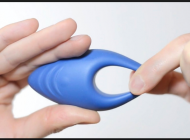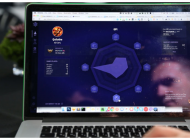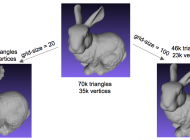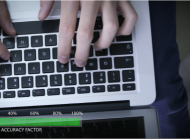In May Google announced the plan to substitute passwords with a Trust Score, a security metrics calculated based on user’s location, face recognition and typing patterns. Google has been testing its Trust API with banks, and if all goes well, they will make it available to the developers’ community by the end of 2016. With this in consideration, I believe that the solution developed by TypingDNA from Romania is very timely and relevant.
TypingDNA is a research startup that gathers knowledge about typing biometrics, or the way people type on computer keyboards. This area has more to do with statistics and machine learning, especially pattern recognition, than with biometrics in general. The results TypingDNA’s research are then incorporated into various commercial solutions. The first available product is an Authentication API for apps looking to add an extra security layer based on the way users type. Another solution, a work in progress, is an app that runs on your personal/corporate computer and protects it by blocking all potential intruders when they start typing. These may include anyone but yourself: friends, family and colleagues, but also thieves and hackers.
The market for typing biometrics
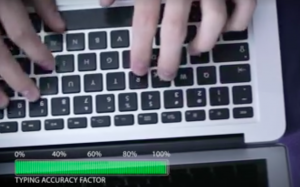 Typing biometrics is used for authentication and fraud prevention by banks, payment systems, e-learning systems, big corporations, governments and security agencies. But the Romanian startup sees a potential client in every app that handles sensitive information or where a user needs to log in.
Typing biometrics is used for authentication and fraud prevention by banks, payment systems, e-learning systems, big corporations, governments and security agencies. But the Romanian startup sees a potential client in every app that handles sensitive information or where a user needs to log in.
A typical example is the bank transactions and payments. In 2015 only there were over $1 quadrillion in online transactions. Whenever you initiate a transaction you need to verify your identity, usually with a physical token or OTP (one-time password sent via SMS). This is quite a hassle and doesn’t really protect you if the intruder has access to your phone, while your typing patterns are harder to replicate and can be read passively.
On top of that, the new PSD2 EU directive opens the door to new opportunities as it requires all banks and payment systems to add another multi-factor authentication method and typing biometrics is one of the best approaches so far. It enables a non-stop monitoring of the user’s typing patterns, and thus, continuous authentification.
E-learning is another promising market for typing biometrics solutions. In 2015 universities and e-learning platforms issued a $51B-worth of online certificates, and this figure is growing fast. To maintain the credibility of their credentials, they need to make sure online students are not cheating. Typing biometrics solutions will help ensure that the enrolled student and certificate holder is the same person who actually takes the course and the exams.
Given the potential market size, security companies have been adding typing biometrics service to their offerings. Raul Popa, the CEO of TypingDNA, told me that as it’s not their core product, the technology is often underdeveloped. He counted about 3 companies that are focused solely on typing biometrics, each of them trying to cover a specific niche. The pie is big enough and the competition is yet too small compared to other similar fields.
TypingDNA is in the process of finalizing a seed investment that should them a 1 to 1.5 years of runway. The team applied to How to Web Startup Spotlight, a 3-day deal-making program for tech startups from all over Europe, and I believe they will be selected to pitch. We have recently announced the call for applications for this competition which will be held on October 31st-November 2nd in Bucharest, the deadline is September 25th.
Technologies
JavaScript, PHP, Python, Node.JS, Microsoft Azure, Theano, TensorFlow, Swift, C#. T
The team behind TypingDNA
The startup has three co-founders. Raul Popa, the CEO, has been in the software business for over 15 years, progressed from software engineer to Product manager and CTO positions, and co-founded twp businesses. He studied sociology, statistics and psychology, got involved in AI/machine learning solving atypical pattern recognition problems, which finally led him to starting TypingDNA.
Cristian Tamas is focused on market research and user acquisition; he used to work with Raul on previous projects
Adrian Gheara had a successful exit more than 10 years ago and became one of the most active angel investors in Romania. His previous company dealt with securing user data.
Cover image credit.






